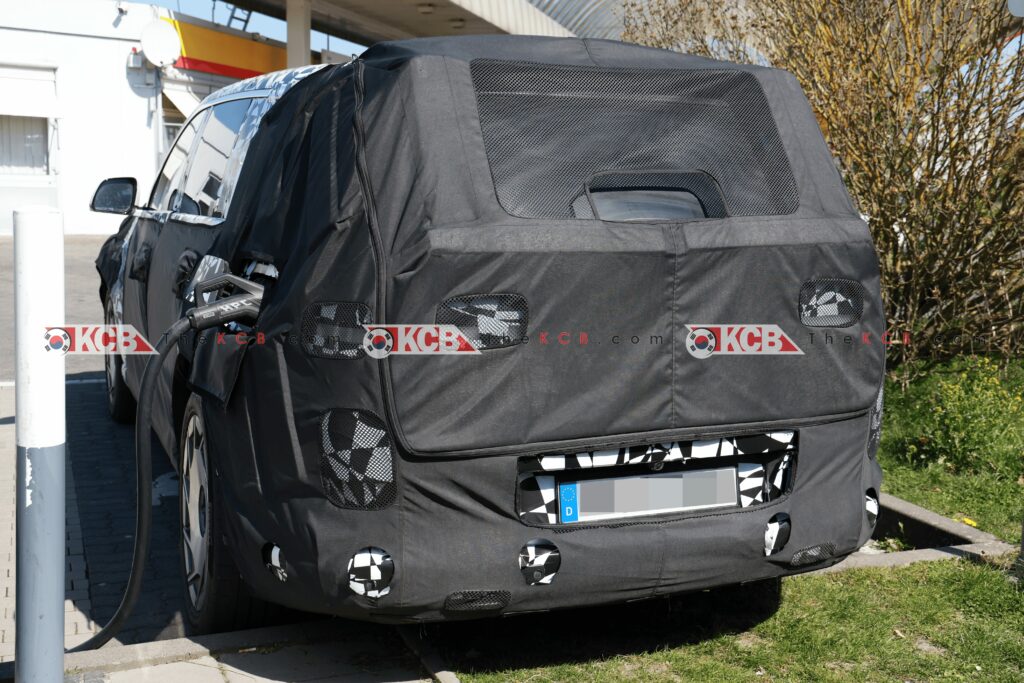Genesis is set to equip the upcoming Genesis GV90, the flagship SUV under its luxury brand Genesis, with an Extended-Range Electric Vehicle (EREV) powertrain according to Money Today report. This powertrain option is expected to give the model a driving range of over 700 miles (1,200 kilometers), further strengthening Hyundai’s push into electrification by offering greater flexibility for premium vehicle consumers.
GV90 EREV Set to Launch After Initial EV Debut in Early 2026
According to industry insiders, Hyundai plans to launch the GV90 EV in the first quarter of 2026, followed closely by an EREV variant in 2027. While the GV90 was initially intended to be a pure electric vehicle, market trends—especially the temporary slowdown in EV demand, known as the “chasm effect”—have prompted the automaker to consider a transitional model to bridge the gap between internal combustion engines and full electrification.
What is EREV and Why It Matters?
An EREV (Extended-Range Electric Vehicle) features both a battery-powered electric motor and a combustion engine. However, unlike traditional hybrids, the internal combustion engine in an EREV acts solely as a generator to charge the battery, not to drive the wheels directly. This setup significantly extends the vehicle’s range and reduces reliance on charging infrastructure, making it a compelling solution for drivers concerned about range anxiety.
If the GV90 integrates this EREV technology, it could boast a driving range exceeding 1,200km (745 miles)—positioning it as one of the longest-range electrified vehicles in the global market.


Changing Strategy in a Shifting Market
Hyundai’s decision to include the GV90 in its EREV lineup reflects the fast-changing landscape of the automotive industry. With a potential second Trump administration expected to roll back EV incentives in the U.S., and consumer preferences shifting towards hybrid vehicles, the company is adapting its strategy to remain competitive across global markets.
Notably, the GV90 is also expected to be Korea’s first F-segment (full-size luxury) SUV, enhancing Hyundai’s high-end electrified vehicle offerings.
Hyundai’s EREV Plans Extend Beyond the GV90
Previously, Hyundai had announced plans to introduce EREV versions of the Hyundai Santa Fe and Genesis GV70as the first models to feature this powertrain. At the 2023 Investor Day, the automaker outlined its goal to sell over 80,000 units annually of its D-segment EREV SUVs in North America and an additional 30,000 units of C-segment models in China.
Adding the GV90 to this lineup signals Hyundai’s intent to lead the luxury EREV segment, especially as global competition intensifies.
EREV Gains Momentum Worldwide
China is already witnessing a boom in EREV popularity. Companies like Li Auto are expanding their market share with models such as the L7, which boasts a certified range of up to 1,050km. Other Chinese brands including Luxeed (a Huawei and Chery joint venture) and Xiaomi are also preparing to enter the EREV space.
Globally, automakers are following suit. Volkswagen plans to introduce an EREV through its U.S.-exclusive brand Scout Motors in partnership with EV startup Rivian by 2027. Similarly, Stellantis Group’s Ram brand is developing an EREV version of the Ram 1500 pickup, which will offer a range of approximately 1,100km.

